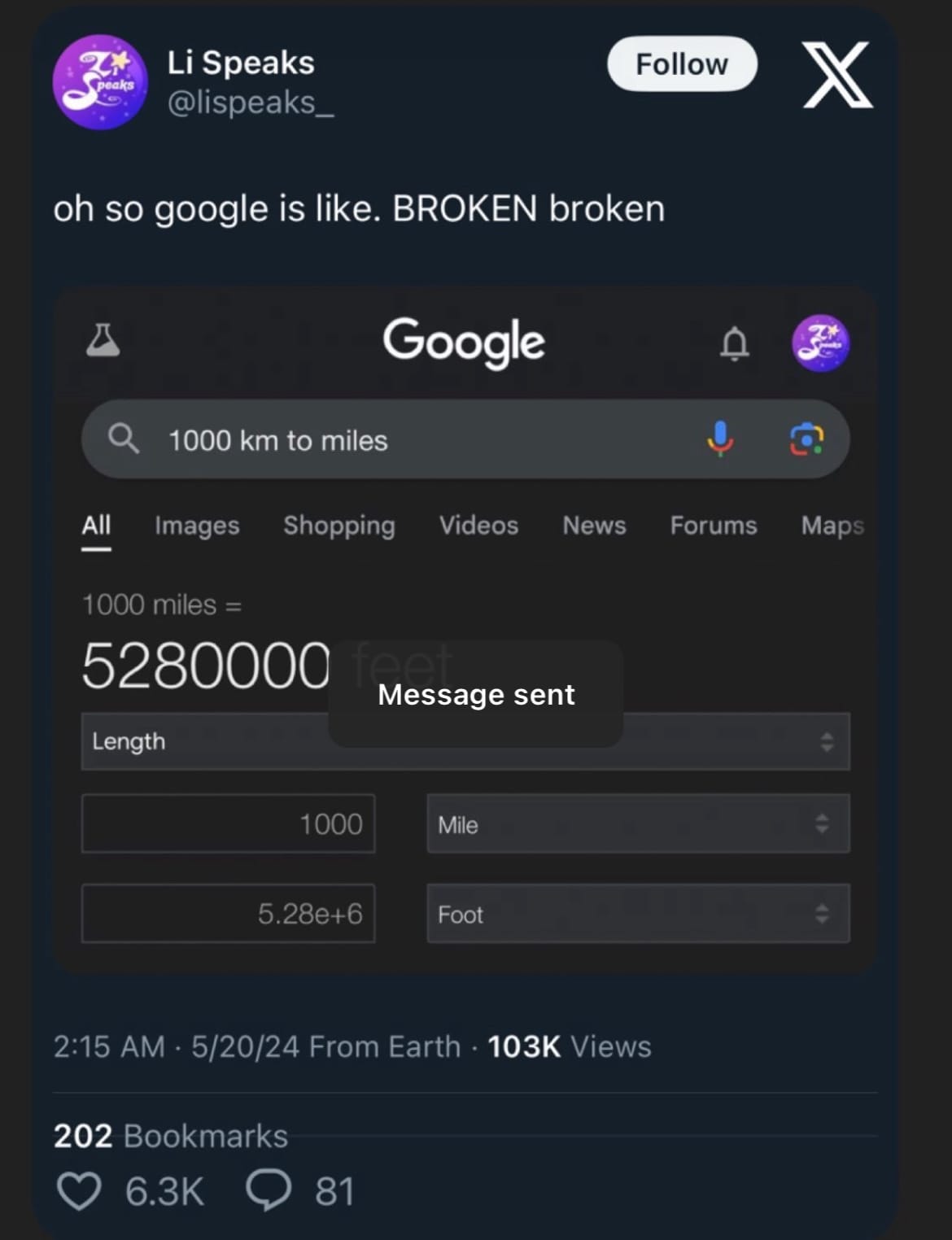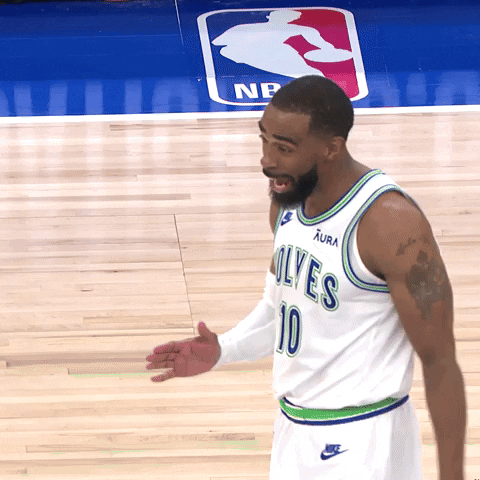Greetings! It's my first healthy-feeling day in, ohh, ten days or so, and I'm extremely stoked not to be stuffed up in the head.
I promised a long explication of style as it relates to digital content strategy — and a few of you wrote some lovely notes in response to the last issue's definition — but that will have to hold until next week. All the notes and organized thoughts on style went completely out the window because, well, is there anything less stylish than a stuffy nose? I haven't felt stylish in a good number of days and need to reup my moxie before I write about style.
Since I went down the rabbit hole of an average-intensity but many-days-long cold, we've had so much news in the worlds of content and technology. So. Let's talk generative AI, search, and what you need to worry about to keep your job (short answer: focus on building your own source of truth on your website and you will be fine.)
But first!
Support The Content Technologist
Do you enjoy this newsletter? Awesome. I love writing it. I've been working hard on reigning in our website, client offerings, and business model to a sustainable mix of speaking, education, and project execution that enables me to continue the free newsletter and website.
I've been working hard to improve the reader experience and make our brand profiles consistent across the web. The new Content Technologist homepage will (hopefully) launch next week!
I'm also stoked to reintroduce software reviews later this year. I've been demoing some really amazing software and can't wait to share what I've found with this newsletter.
And as we sail into the end of Q2, I could use your help. In order of commitment levels,
- Check out our new reading lists and grab one of our recommended books if you're looking for some big content thinking (and otherwise).
- Explore the new courses subdomain. Sign up for a course, like our advanced audience research course (on sale til June 15!) and the full Content Strategy Expansion Pack course program. If you're in search of professional education this year or just seeking to understand more about your web-based content business, consider signing up!
- Sponsor this newsletter and website. If you're a brand, software company, or agency looking to reach content strategy leaders? Check out our media kit and support this newsletter directly.
- Book a training. Interested in the courses, but more engineered for your whole team? Hot dog! I provide virtual and in-person education customized for your team! This year I have two speaking programs for hire:
- Developing your brand's knowledge graph (and knowledge graphs in general)
- Understanding web content analytics and Google Analytics 4
I customize each training for your team's needs and your digital situation and can adapt for all levels of understanding and web situationships. Reply and reach out if you'd like to work together.
- Hire me as a consultant/collaborator. Need help with your website content strategy? Stumped by Google Analytics 4? Want to benchmark your content performance to prepare for a year-end growth spurt? Looking for the best place to make optimizations in the era of generative AI? I'd love to work with your brand or agency on any of these projects! I have availability this year, so please: reach out at any time and let's see how we can collaborate.

What should you do about Google's new AI answers?
Short answer: Nothing. Don't bother with becoming angry at the AI answers; don't listen to the Chicken Littles yelling about the AI answers; don't even bother thinking about the AI answers until they start becoming useful. Yes, the new results are terrible, but:

Don't panic. Everything you've been hearing about publishers bracing for declines in traffic is a narrative manufactured by reporters who are responsible for coming up with a story and not responsible for their website analytics or business strategy.
Media companies and news publishers are historically terrible at SEO strategy. Like, really bad. Because of the nature and norms of their industry, "news" producers have a hard time imagining the world tomorrow, let along a month from now. The kind of long-term strategic, connected content planning for search optimization that digitally native brands execute, the kind that takes months to build, publish, and organize... it's pretty anathema to most media companies and the reporters they hire, especially those who once printed something monthly or daily. Most
I say this with a love for journalism and all those who work in the field: y'all have many strengths, but as an industry, you don't understand long-term SEO. Media reporters do not understand SEO or how to forecast its impact because most media reporters have never been formally trained in analytics, SEO strategy, or audience behavioral dynamics. Most media folks have never looked at analytics from any website besides their own. Also, most reporters aren't trained in data science best practices because data science is a new discipline, and the nature of reporting (say, asking three people for similarly anecdotal stories) is quite different than analyzing the kind of mass data that search folks use.
But what about my affiliate website and TOFU content?
Look, if you're relying solely on Google for affiliate revenue based on link purchases through Amazon, it's likely you've been experiencing revenue declines for some time. Those product-focused review websites will likely continue to experience declines because generally, they are not that good (content and website speaking).
If you're still optimizing your website for "TOFU" on landing pages without incorporating that TOFU into your website's information architecture... you might be a bit up the creek in the near future.
But for those of us building informational websites or selling products on websites of our own and not directing to Amazon, we're mostly, generally, all good until Google fixes its broken product.
If you're all in on making good, solid website content that describes the truth about your organization and connects with audiences, then you have nothing to worry about from changes in Google search.
Related: Here's a website to execute only Google's old-school web-based search if you want to eliminate the generated AI answers in Chrome entirely. Thanks to Tedium's Ernie Smith for putting it together.
Other content tech links of the week
- Metaphorically cosplaying as Ursula the Sea Witch, Sam Altman and the OpenAI crew released a chatbot voice that sounded remarkably like Scarlett Johansson's OS character from the movie Her. OpenAI promptly discontinued the 'bot voice when ScarJo released a statement saying she'd been asked for permission and denied them the rights to her voice. Although the OpenAI team insists that Altman alone asked ScarJo for her permission and tweeted the word "her"‚—I mean, who among us hasn't had our yearlong content production project dashed on the rocks by an overzealous CEO?)—internet hero Katie "Kapie" Notopoulos asks the most important question of the whole affair: What's with these clowns?
In conclusion, I am pleased to be in good company with others who think Sam Altman is a total doofus who should have imposter syndrome. - The Pew Research Center explores link rot—or the disappearance of reliable, highly linked informational content from the internet. If you manage websites, move content around, and manage information architecture, this might not come as a surprise, but the report states "38% of webpages that existed in 2013 are not accessible today." I'm still digging in to explore what "not accessible" means (are we accounting for redirects?), but... yeah, that number seems about right.
As we move through the third full decade of the web, what are our expectations that organizations maintain and manage their website content for archival purposes? - Related: Content strategist Sarah O'Keefe wonders, Does your enterprise organization have too much wasteful customer-focused content?
- The New Yorker discovered the best newsletter content strategy: As an organization, send fewer emails, put more content in the email itself and don't link out. I've been advocating for this strategy since 2018 or so, but it's a good one.
More than once a week is too much for most readers. - The New Yorker discovers the homepage! I'm on board with this piece—your homepage should be a place readers want to come back to and discover new information. However, for most websites. 60%+ of your website visitors will not see your homepage first, so... make a good homepage! And good article landing pages pages that draw people in and connect them to your content!
- According to Empathy and AI, we are entering the Agentic era of UX. Bots are being trained to research specific tasks... so what does that mean for your content? I'm still wrapping my head around the Agentic concept (do y'all just want servants?), but this is a good overview.
- You are not a commercial for yourself, say the cool kids at Blackbird Spyplane, and they're right.
- The very cool new web-based publication Asterix magazine ran a Q&A on How to make a great government website that starts with Jeremy Bentham and goes into the experience of designing GetCalFresh.org, a portal to accessing food stamp benefits in the world's fifth largest economy.
- No Web Without Women describes women's accomplishments in building fundamental digital technologies.
- Craft prompts conversion, over on the Figma blog. Interaction designer Christopher Butler argues that focus elevates craft. But over on the bizdudebro blog Every, a coder wonders whether craft is superfluous to business performance.
Want your link to appear above or share software to review? Tell us what's good!
Share what you've been working on or infatuated with on our new perma-tip line What's Good?

The Content Technologist is a newsletter and consultancy based in Minneapolis, working with clients and collaborators around the world. The entire newsletter is written and edited by Deborah Carver, independent content strategy consultant, speaker, and educator.
Advertise with us | Manage your subscription
Affiliate referrals: Ghost publishing system | Bonsai contract/invoicing | The Sample newsletter exchange referral | Writer AI Writing Assistant
Cultural recommendations / personal social: Spotify | Instagram | Letterboxd | PI.FYI
Did you read? is the assorted content at the very bottom of the email. Cultural recommendations, off-kilter thoughts, and quotes from foundational works of media theory we first read in college—all fair game for this section.
Look, I'm a very recent bandwagon member of the Naz Reid Appreciation Society, but that doesn't make my enthusiasm during NBA playoffs any less valid. Anyway goooooooo Timberwolves!



